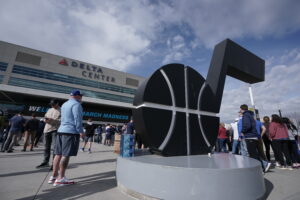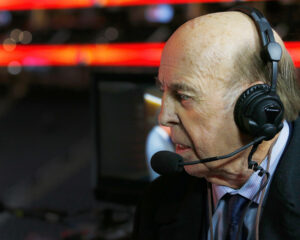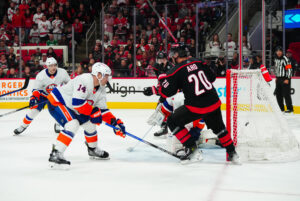Since last week, many Canadian citizens are rejoicing as the Cannabis Act went into effect. Canada becomes just the second country in the world to fully legalize recreational marijuana. But how does this impact the nation’s most popular pastime? What does this mean for the NHL?
How the Cannabis Act Affects the NHL
What is it?
The two main components of cannabis plants are cannabidiol (CBD) and tetrahydrocannabinol (THC). Both have many similar medical benefits but aren’t the same. The former is the nonpsychoactive ingredient whereas the latter is the chemical that gives users the high that is typically associated with marijuana. Athletes tend to use CBD products more so for that reason.
CBD comes in many forms. Oftentimes it’s extracted from the plant and used in various products such as gummies, chocolates, lotions, sprays, cooking oils, drops, and many others. It’s known to help treat ailments such as nausea, pain, inflammation, depression, anxiety, migraines, stop seizures, and more.
THC has many overlapping qualities as CBD. In addition to what the former treats, it can also help ease muscle spasms, insomnia, weak appetites, and glaucoma. On the other hand, this compound is typically ingested mainly through smoking. It can also be taken in the form of edibles, capsules, oils, and other forms. To find a CBD cartridge near me, it took a simple Google search should that be of interest.
The NHL’s Stance
For years, the NHL has been the only professional sports league in North America to not punish players for marijuana use. Other athletes are routinely suspended and fined for testing positive during drug screenings. However, the NHL for years has never punished players. It’s not included on the league’s list of banned substances due to it not being considered a performance enhancer such as steroids. According to former enforcer Riley Cote, around half the players in the league regularly used some form of cannabinoid during his tenure in the NHL. He’s stated that athletes who test positive for hard drugs, such as cocaine, are enrolled in a month-long substance abuse program. When a player tests positive for marijuana, however, it’s merely a private call with the League and Players Association.
The NHLPA is maintaining their leniency with marijuana. While not condoning it just yet, they are encouraging players to exercise caution. Many executives are warning players that there still is much research left to be conducted. With that being said, they still allow players to experiment with cannabis.
Opioid Alternative
There’s no doubt that there is an opiate crisis as of late. Given how hockey players constantly put their bodies on the line night in and night out, these young guys are very susceptible to this awful addiction. Former NHL All-Star and two time Stanley Cup champion, Kevin Stevens saw his career and his life spiral out of control due to opioid addiction following a serious on-ice injury. More recently, beloved enforcer, Derek Boogaard tragically passed away in the summer of 2011. He accidentally overdosed on a mixture of alcohol and oxycodone while recovering from a concussion. Many others have struggled with dangerous addictions. It’s not a clear replacement just yet. It may take years to fully accept marijuana as an alternative. However, this definitely opens the door for a promising method to slow down the rampant and lethal opioid addictions.
Players’ Perspectives
Cannabis is known to be a substitute for traditional prescription drugs. Despite still needing more research, it’s apparent that there are many benefits. Riley Cote became a strong advocate for replacing marijuana with pills. Following retirement, he helped found a nonprofit dedicated to this mission. Athletes for Care is comprised of former NHL and NFL players advocating, educating, and promoting this new medicine.
Soon after the Cannabis Act was passed, Connor McDavid, one of the greatest and most influential players in hockey spoke out. He told the Associated Press:
“I say this more talking about the CBD side of it, obviously: You’d be stupid not to at least look into it. When your body’s sore like it is sometimes, you don’t want to be taking pain stuff and taking Advil all the time. There’s obviously better ways to do it. … You’re seeing a lot of smart guys look into it. You’re seeing a lot of really smart doctors look into it. If all the boxes are checked there and it’s safe and everything like that, then I think you would maybe hear them out.”
Former enforcer, Paul Bissonette, has recently advocated positively for CBD. He has talked about its benefits on the Spittin’ Chiclets podcast.
For those asking about the hemp based CBD balm and mouth drops me and the @spittinchiclets crew have been taking. The company is called @UrbalActiv based in Arizona. The website is https://t.co/GaEteSXaA2. It’s honestly been life changing for me personally. https://t.co/eSXWCE1bzm
— Paul Bissonnette (@BizNasty2point0) September 14, 2018
What Does the Future Hold?
With so many proponents in the league vying for alternative medicine, it will be interesting to see what lies ahead. Canada has taken a massive leap in providing safer substitutes for players looking to recover safely.
While America’s marijuana laws are more complicated and falling behind, there still shows promise. So far nine states have legalized recreational marijuana and medical as well. Massachusetts, California, and Nevada are the only fully legal states with NHL teams including Washington D.C. (Washington state will soon join that list with the coming Seattle expansion). 22 have legalized only medical use. Of that group, New York, Arizona, Minnesota, Michigan, Illinois, Florida, Ohio, New Jersey, and Pennsylvania all host NHL franchises. More and more states are further legalizing cannabis despite the struggle against federal law. Time will tell how America can respond but for now, Canadian hockey players can rejoice at the new door of opportunity for a safer method of relief.
Main Photo:
Embed from Getty Images






